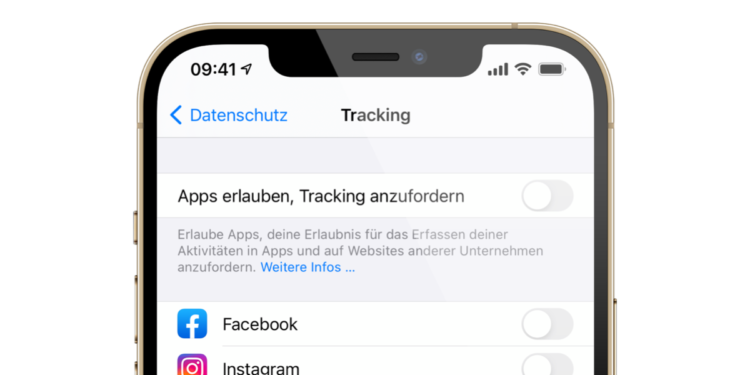In iOS 14.5, Apple introduced the so-called App Tracking Transparency (ATT). According to an analysis, this seems to be gaining widespread acceptance.
According to Flurry Analytics, which has been tracking daily opt-in and opt-out rates since the launch of iOS 14.5 late last month, pursued, about 4% of daily users in the U.S. allow apps to access their Identifier for Advertisers (IDFA) tag. The number is based on a sample of 2.5 million daily active mobile users. The rates increase when other countries are included, with about 11% of the 5.3 million daily users worldwide consenting to ad tracking. Daily rates are calculated by dividing the number of devices that have opted in to tracking by the total number of devices that have both opted in and out of tracking using ATT. Interestingly, Flurry's data suggests that users are actively opting out of tracking requests.
“Allow apps to request tracking” is active for most
The company found that only 4% of iOS 14.5 users have the “Allow apps to request tracking” option disabled in settings. That number drops to 2% in the U.S. When the “Allow apps to request tracking” option is disabled across the board, IDFA data access is automatically restricted and apps from asking for permission to track. Built into the latest iOS, iPadOS, and tvOS versions, ATT is a new feature that requires developers to ask users before tracking their movements across other apps and the web. Hailed by Apple as an important tool for protecting user privacy, critics say requiring permission for ad tracking discourages users from participating, hurting companies that rely on ad revenue.
iOS 14.5: Developers still have to adapt to new guidelines
Apple offers a range of secure ad attribution tools as privacy-friendly replacements for the industry's standard tracking methods. The systems, including the SKAdNetwork and Privacy Click Measurement, do not directly identify the user and can therefore be integrated without the user's explicit consent. Developers are still in the process of adapting to the new guidelines. A report published shortly after the debut of iOS 14.5 showed that about 10,000 apps have created the necessary user requests. According to some estimates, there are about two million titles in the App Store. (Image: Apfelpatient)





